
Group photo in the garden of "Alte Urologie". Photo: Stefan Heiden / HIOH
Our workgroup addresses factors that contribute to the success of antimicrobial-resistant bacteria with a focus on Enterobacteriaceae. This does not only include the characterization of resistance but also the in-depth investigation of virulence and fitness determinants. With geno- and phenotypic experiments including experimental (micro)-evolution, functional and phylogenetic genome analysis as well as biofilm formation assays it is our main goal to analyze, to better understand and to fight successful pandemic pathogens. In collaboration with others, we elucidate the occurrence and transmission of antimicrobial-resistant bacteria in humans, animals (including food products) and the environment in a One Health context and push towards identifying and validating innovative bacterial therapeutic targets to fight antimicrobial-resistant pathogens. We can only counteract the threat of antimicrobial-resistant bacteria in a holistic approach!

Group photo in the garden of "Alte Urologie". Photo: Stefan Heiden / HIOH
Visit the Helmholtz Institute for One Health on Bluesky.
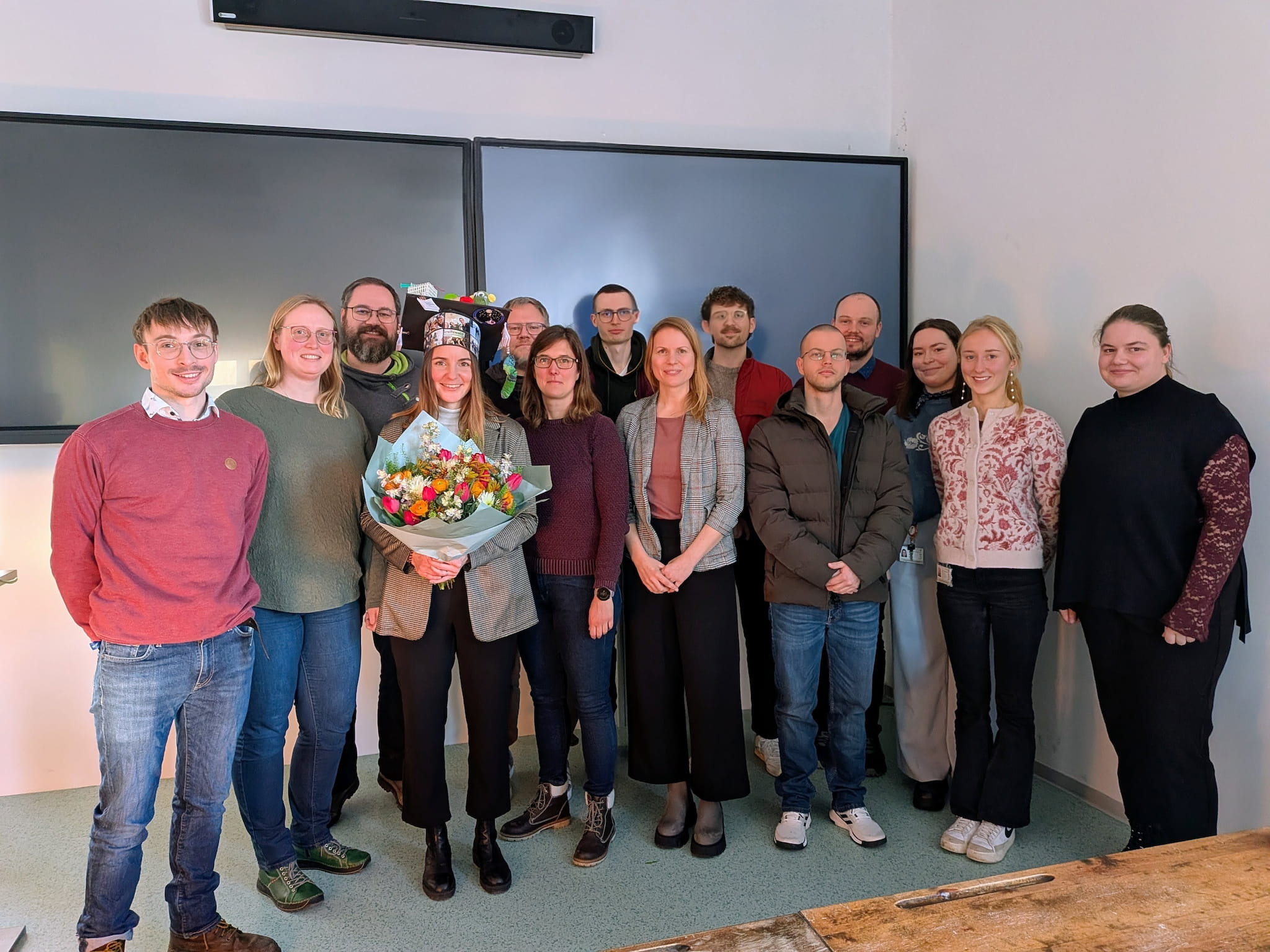
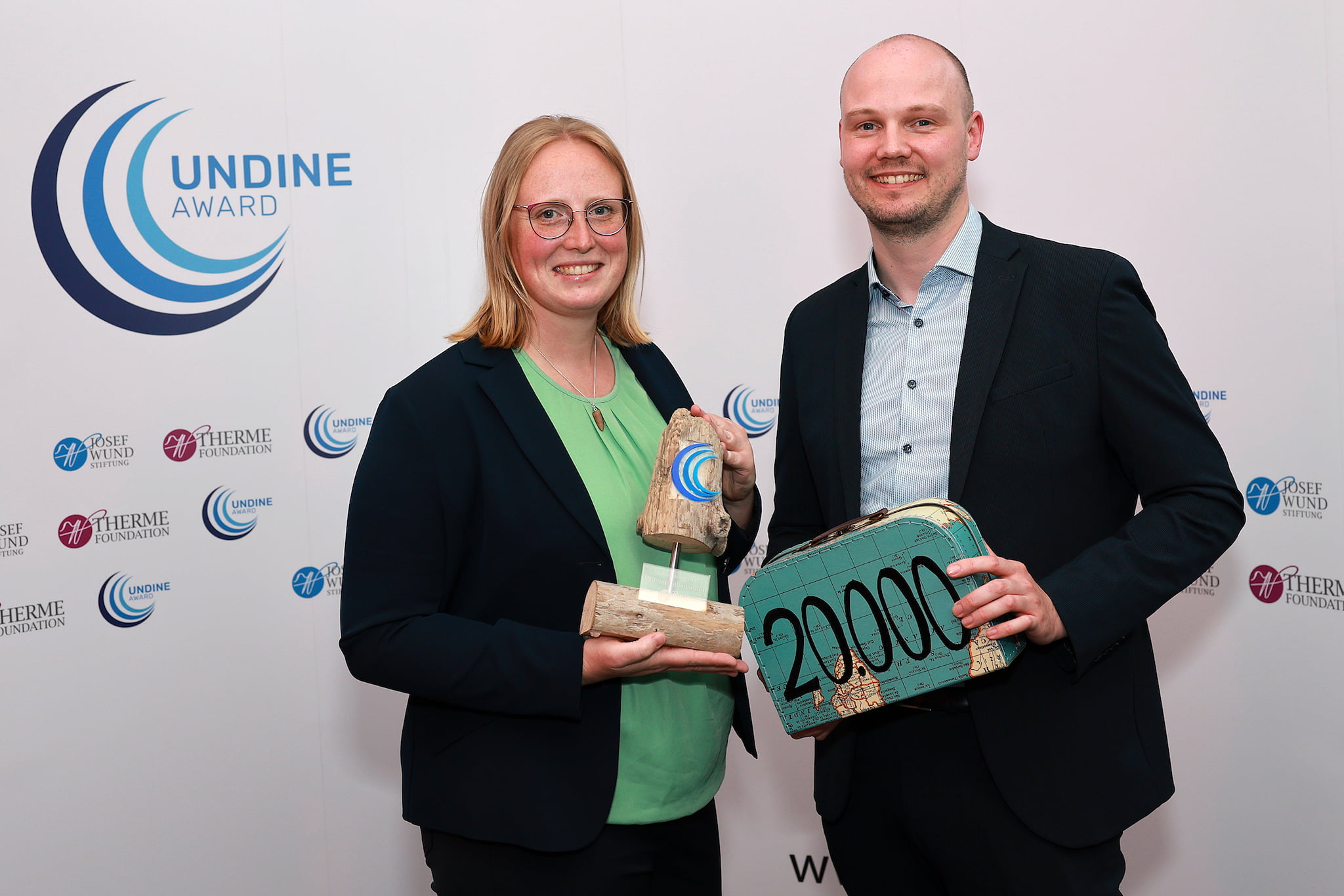
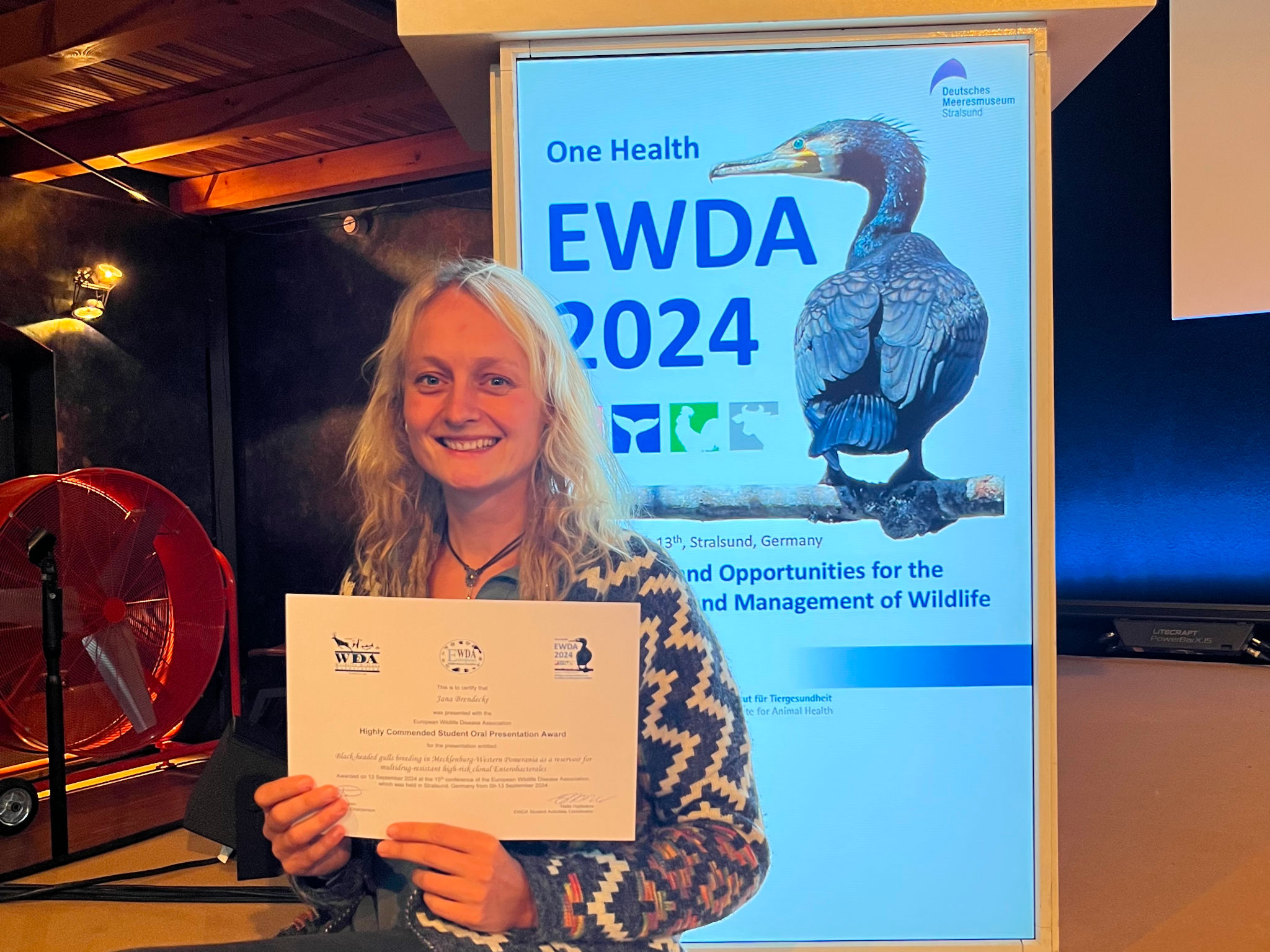
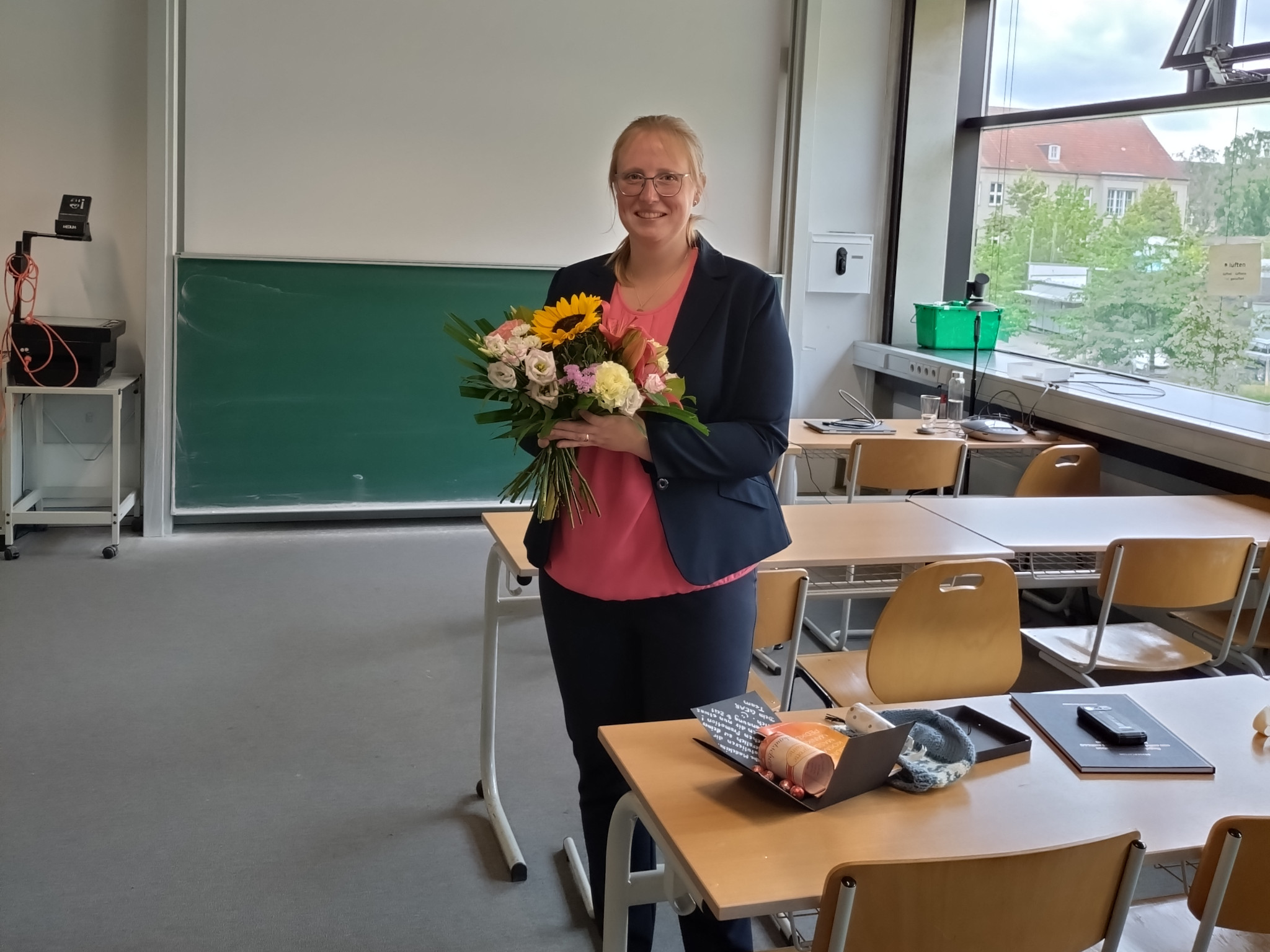
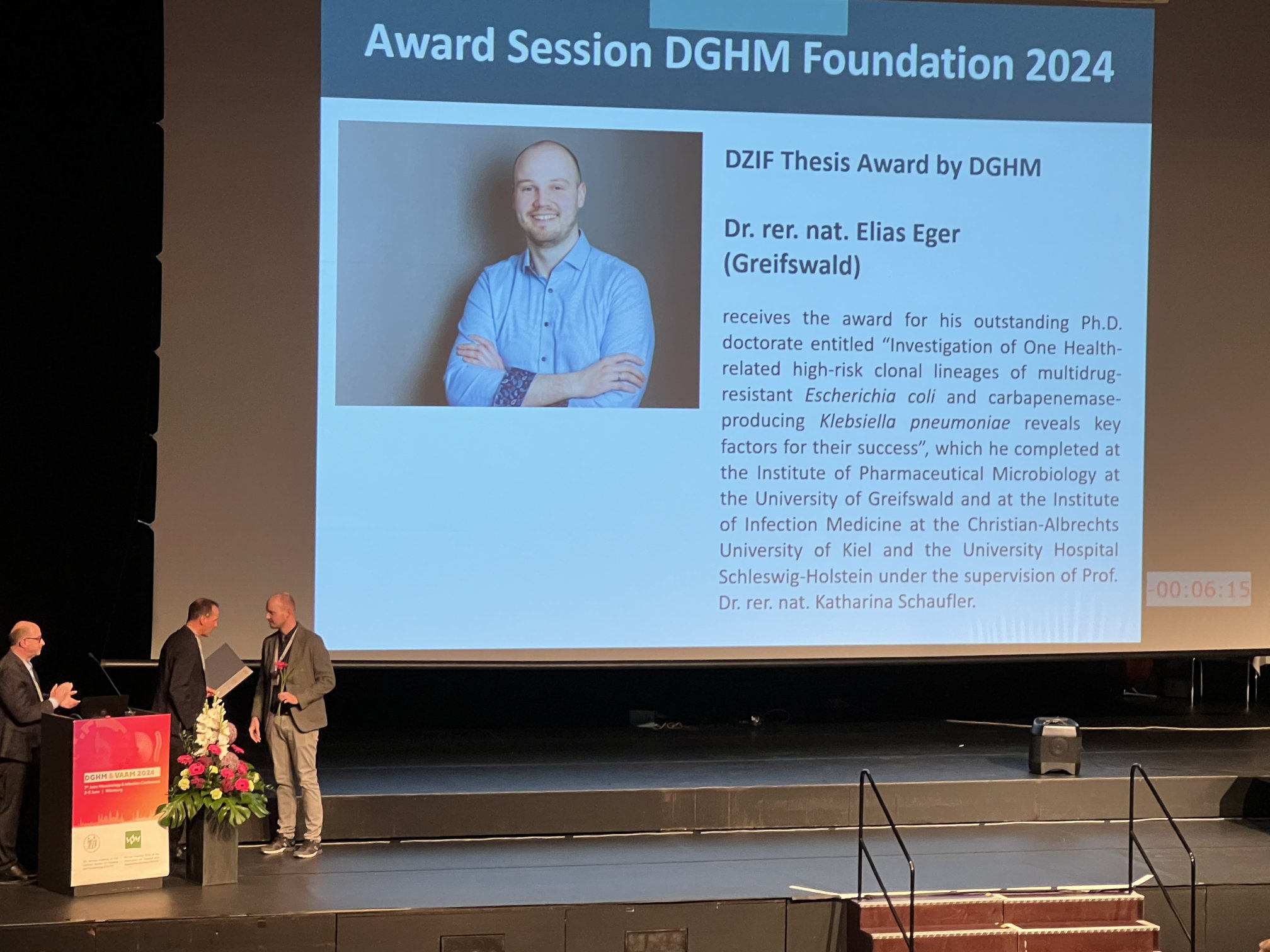
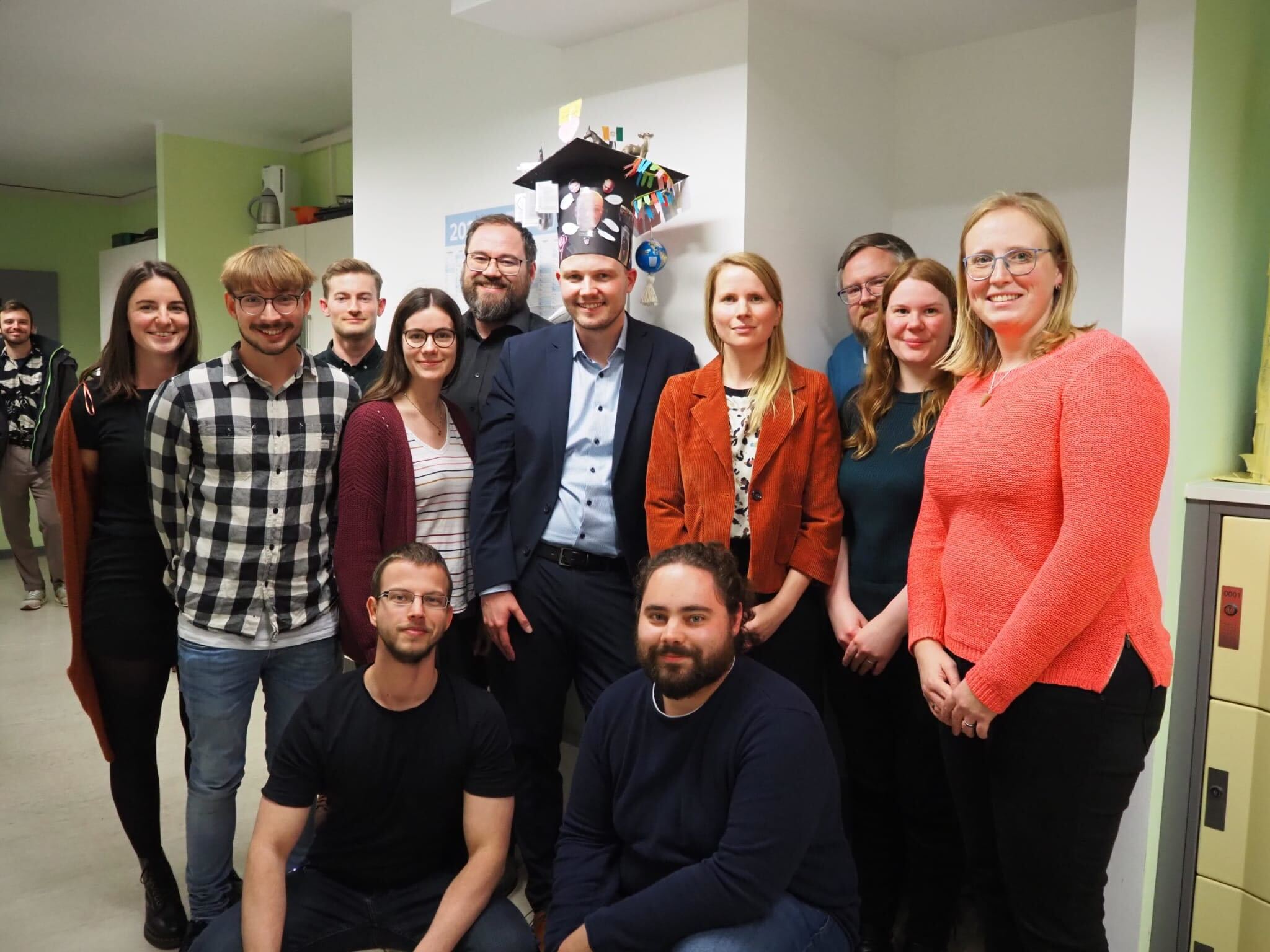
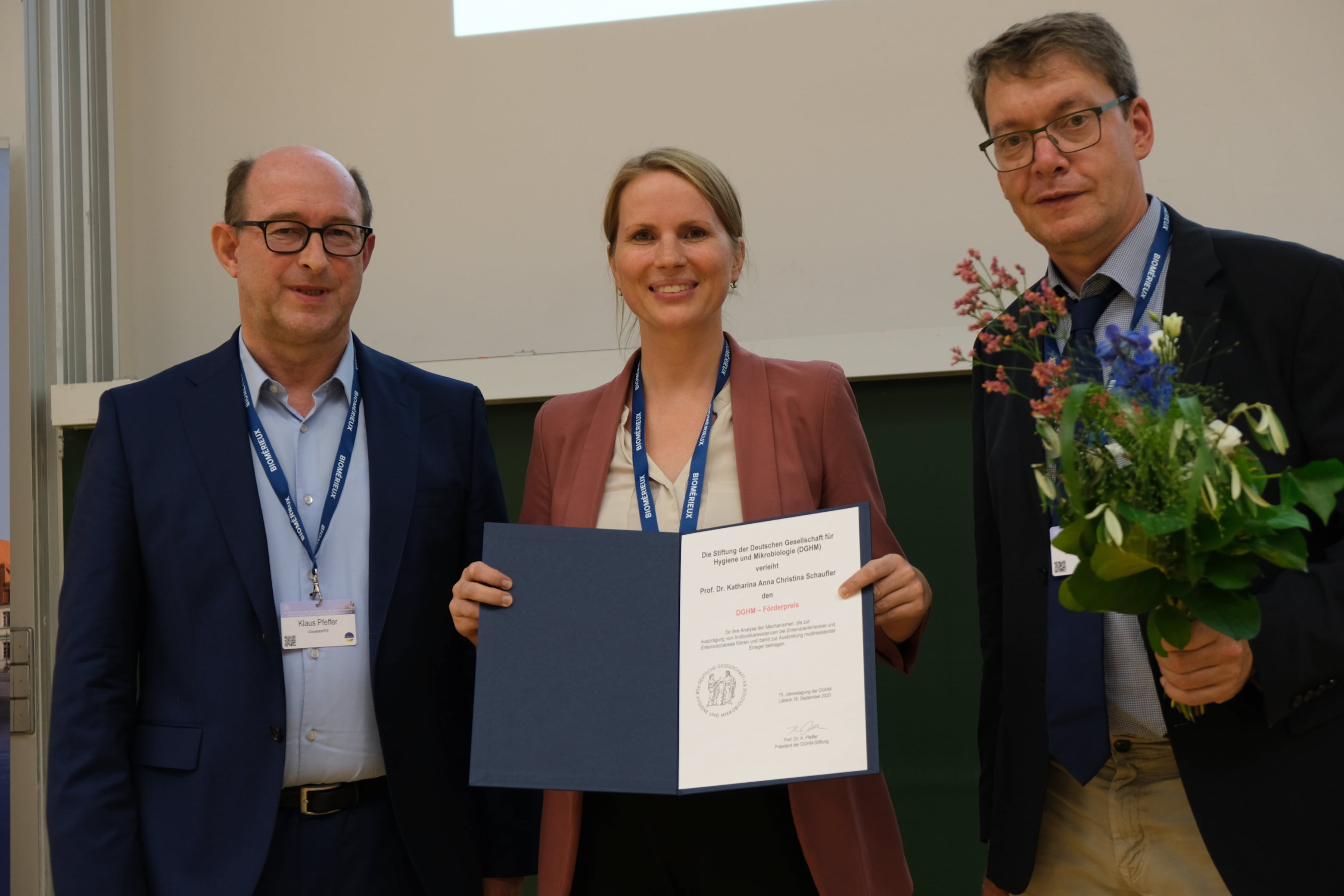
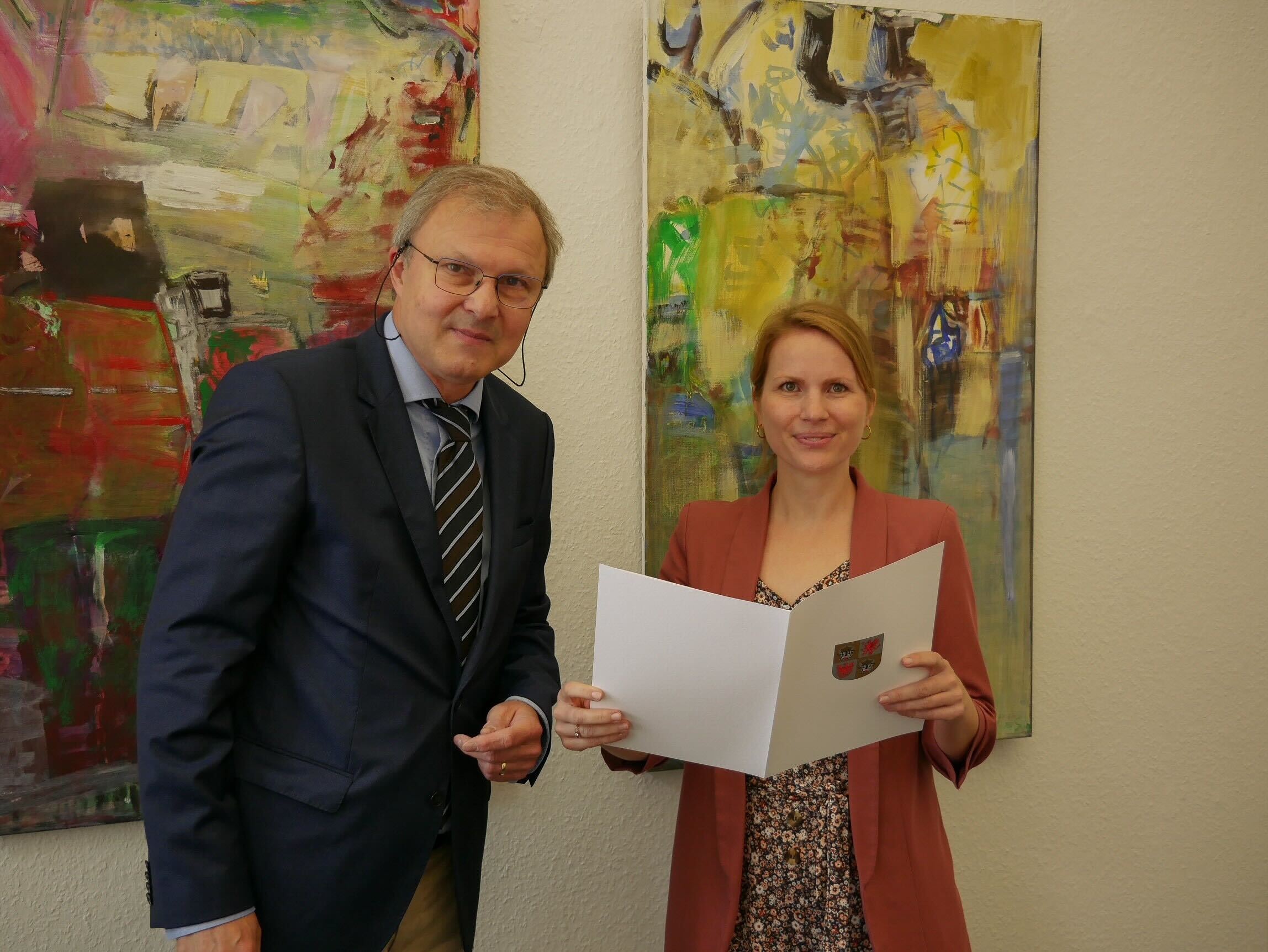
Clean water resources are essential for public health, resilient ecosystems, and
sustainable economies. However, chemical and microbial pollution intensified by climate change and the
increasing frequency of floods and droughts pose a growing threat to urban water safety and water reuse.
UrbanClean addresses the urgent need for safe and sustainable management of local urban water cycles
under these changing conditions. The implementation of blue-green-red (BGR) infrastructures to retain
and reuse rainwater in urban and natural landscapes is generating new, localized water cycles. While
vital for climate adaptation, these systems risk the accumulation of chemical and microbial pollutants.
These contaminants endanger human and environmental health and may compromise groundwater quality.
Therefore, comprehensive monitoring, evaluation, and restoration of water quality are critical.
UrbanClean will investigate which pollutants are mobilized and accumulate under different climatic
scenarios, such as heavy rainfall. The project will quantify and characterize them and study their fate,
transformation, and transport within BGR systems. Based on these insights, UrbanClean will further
develop sustainable and effective pollutant removal strategies. Working in close cooperation with local
authorities, UrbanClean will provide actionable recommendations for pollutant mitigation and long-term
urban water quality management. Key outputs include a detailed urban water quality map, nature-based and
strategic solutions for safe urban water storage, treatment, and reuse, and strategies for
climate-resilient BGR infrastructure. UrbanClean aims to preserve essential water resources, safeguard
public health, and support cities in adapting to climate change through science-driven, resilient water
management approaches.
Funder: Helmholtz Association
Funding amount: 171,100.00 €
Duration: 01/2026–12/2028
Antimicrobial resistance (AMR) is a significant and growing global health threat, driven in large part by the spread of multidrug-resistant (MDR) bacteria. Among the most concerning is extraintestinal pathogenic Escherichia coli, a leading cause of urinary tract infections (UTIs) and pyelonephritis. In hospital settings, these infections pose a particular risk to immunocompromised patients with indwelling catheters. A critical early step in catheter-associated UTIs (CAUTIs) is bacterial adhesion to catheter surfaces, which facilitates the development of biofilms that are difficult to eradicate. Although certain virulence factors are known to contribute to E. coli pathogenicity, the specific genetic determinants enabling strains to adhere to catheters remain poorly defined. This project aims to address this gap by systematically identifying previously uncharacterized genetic networks involved in catheter adhesion of clinically relevant MDR E. coli strains.
Funder: HZI impulse fund
Funding amount: 35,000.00 €
Duration: 01/2026–12/2026
The rise of multidrug-resistant enterobacteria (MDR-E) has been declared a major threat to
human health by the WHO. Colonization of the intestine with multidrug-resistant bacteria, especially
Klebsiella pneumoniae, is a known risk factor for subsequent nosocomial infections. Selective
decolonization of the intestine is not yet possible, but would be a promising preventive strategy.
DeKox is intended to be a "living biotherapeutic product (LBP)" containing bacteria of the species
Klebsiella oxytoca as the active ingredient for selective decolonization of K. pneumoniae.
Unlike probiotics, LBPs are a new class of drugs that are subject to pharmaceutical
regulations. Precisely defined strains of K. oxytoca bacteria are to be formulated in
freeze-dried form in enteric-coated capsules for oral administration. There are currently no approved
preparations in the EU for the decolonization of MDR-E-carrying patients. With a team of scientists,
clinicians, and pharmacists at the HZI in Brunswick and the University Hospital in Cologne, DeKox aims
to gather significant experience in the development of these drugs with the German regulatory
authorities.
Funder: DZIF
Funding number: 8004808935
Funding amount: 69,203.70 €
Duration: 08/2025–11/2028
Antimicrobial resistance (AMR) surveillance and monitoring in the One Health context calls for interdisciplinary and multinational, standardized approaches at the human-animal-environment interface. Several previous studies describe the occurrence of AMR bacteria such as multidrug-resistant (MDR) Enterobacterales and Pseudomonadales and AMR genes in one of the One Health dimensions including (wild) animals and the environment superficially. However, fewer efforts exist to holistically investigate the exact roles of wastewater treatment plants/surface water and wild birds as connected reservoirs for their global dissemination and spill-over. Here, we plan to investigate the occurrence of such bacteria, AMR genes, AMR in water-borne pathogens, and compound residues in water and wild birds across the Baltic Sea region, for which we have assembled experts from littoral states. By leveraging wild bird movement data and combining bacterial cultivation with genomics, qPCR, and phenotypic methodologies, we aim at analyzing water and wild bird fecal samples to characterize MDR bacteria in-depth, perform microbiological source tracking, assess the rates and fate of AMR genes, and elucidate different factors contributing to the spread of AMR, such as antimicrobial and heavy metal residues, and phenotypic resistance features. In summary, this is a proof-of-concept study of how to set up a standardized and reliable environmental AMR surveillance strategy in the One Health context.
Funder: BMFTR
Funding number: 01KI2402A
Funding amount: 302,169.06 €
Duration: 04/2024–03/2027
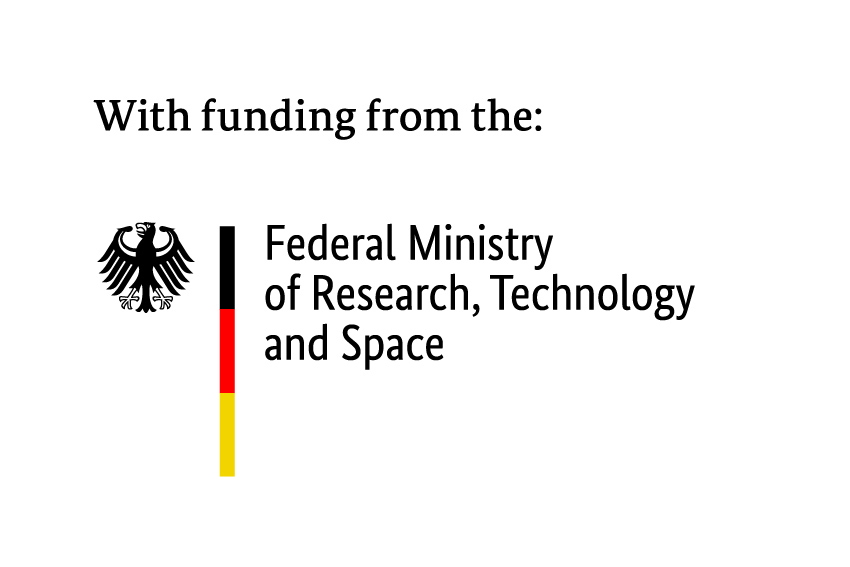
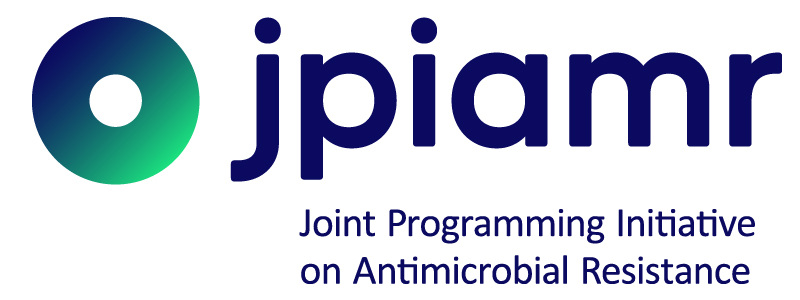
Further information:
BALTIC-AMR
In pursuit of a comprehensive One Health approach, we combine a large-scale collection of fecal samples with existing data sets encompassing wildlife, livestock, and humans in both Kenya and Germany. Our objective is to employ metagenomics to reveal the genomic landscape, identify genes, and detect zoonotic pathogens within samples. Simultaneously, we will investigate selected samples for the presence of specific antimicrobial-resistant bacteria, employing culturomics. This two-pronged approach enables us to delve into the microbial nuances of diverse ecosystems, comparing and contrasting results between the two countries. Through rigorous analysis and integration of the findings, we aim to unravel patterns, differences, and potential interconnections.
Funder: Helmholtz initialization and networking fund for infection research Greifswald
Funding amount: 350,000.00 €
Duration: 04/2024–03/2027
Our long-term goal in the MDR-DEKOL joint project is to develop pharmacological intervention measures to reduce
multidrug-resistant (MDR) pathogens in the intestines of livestock and humans. Natural substances, probiotics and
vaccines are combined to achieve intestinal decolonization. This leads to a reduction in the environmental impact of
MDR pathogens and reduced contamination of animal foodstuffs. In the long term, it is also conceivable that the
principle could be transferred to prophylactic (e.g. preoperative) decolonization of human patients.
The intestine is the natural habitat of many Gram-negative MDR pathogens, which means that they can spread quickly,
e.g. throughout the entire animal population of a stable. The decolonization of these bacteria from livestock is
therefore urgently needed. However, there are problems that are not easy to solve, and attempts based solely on the
administration of prebiotics and probiotics have so far failed. In addition to high efficiency, a high selectivity
in the reduction of MDR pathogens with a simultaneous low impact on the overall microbiome is required. Our solution
to this problem is based on a combinatorial approach that targets specific success characteristics of MDR
pathogens.
Based on synergistic effects through the use of natural substances (e.g. flavonoids) to reduce biofilm formation and
thus the colonization of MDR pathogens in the intestine, the use of probiotics to increase competitive pressure in
the intestine and vaccines against typical surface markers of MDR pathogens that they need to adhere to the
intestinal epithelium (e.g. adhesins), decolonization should be made possible. The approach is therefore aimed at 1)
reducing biofilm formation and thus the ability to adhere to the intestinal epithelium, 2) increasing the
competitive pressure in the intestines of the animals by administering antibiotics and 3) strengthening the host's
resistance to colonization through specific antibody formation against MDR pathogens after vaccination.
Funder: BMFTR
Funding number: 03TR12W02A
Funding amount: 369,570.54 €
Duration: 12/2023–11/2026

Further information:
MDR-DEKOL
The primary project objective is the development and evaluation of an educational measure to integrate the One Health
topic and experiential science into the curriculum involving local schools, research institutes and a professional
Citizen Science (CS) platform (educational relevance) in the T!Raum One Health Region Western Pomerania.
The measure to be developed includes a sustainable CS project with pupils in which the influence of urbanization,
agriculture and climate change on wildlife biodiversity (including zoonotic pathogen reservoirs) and antimicrobial
resistance (AMR) in the environment will be investigated. Together with scientists, pupils will develop a fly-based
monitoring system for wildlife and AMR in Western Pomerania-Greifswald (VG) based on the latest research results in
the field of environmental DNA and bacteriology (practical relevance). Flies (order: Diptera) are used as samplers
of DNA from wildlife and microorganisms (bacteria). Flies are particularly suitable for DNA collection as they are
found in a variety of environments and feed in a variety of ways (e.g. on mammal droppings or carcasses) and can
ingest DNA from a variety of sources.
The generated CS data should provide pupils and scientists with information on
the geographical and temporal changes in the occurrence of zoonotic reservoirs and AMR along a gradient from rural
to urban areas (biological, educational relevance) and enable a comparison of the genotypes of AMR of flies and
humans (clinical relevance). The project aims to strengthen the pupils' general understanding of science, convey the
basics of the One Health concept and generate scientific data in the process.
Funder: BMFTR
Funding number: 03TR12W05
Funding amount: 56,360.00 €
Duration: 11/2023–10/2026

Further information:
CIFLY
The project goal is the co-estimation and investigation of pathogen distribution, host exposure and bacterial genomic and phenotypic diversity that will provide important insights into the ecological processes governing the circulation of pathogens at the human/domestic/wildlife interface, especially in the context of longitudinal monitoring efforts in Mecklenburg-Western Pomerania (MVP). Here, we assembled a coherent and comprehensive diagnostic pipeline based on innovative but stable technologies that we will specifically tailor to the One Health surveillance needs in the two regions where it will be active (Sub-Saharan Africa and MVP). This pipeline will constitute a very solid foundation for all future diagnostic activities at the Helmholtz Institute for One Health in Greifswald.
Funder: Helmholtz initialization and networking fund for infection research Greifswald
Funding amount: 467,400.00 €
Duration: 09/2023–08/2026
A systematic sampling framework will be established for the continuous collection of longitudinal data and biological samples from free-ranging wild boar, wild ruminants, and carnivores in the One Health context. The wildlife samples will be investigated for selected pathogens and antimicrobial resistances paving the ground for a systematic and longitudinal wildlife monitoring in Mecklenburg-Western Pomerania and beyond.
Funder: Helmholtz initialization and networking fund for infection research Greifswald
Funding amount: 194,000.00 €
Duration: 08/2023–07/2026
The aim of this research project is to identify and investigate success features of pandemic, antibiotic-resistant
Escherichia coli and Klebsiella pneumoniae in order to develop innovative anti-infectives
strategies.
By using a wide range of methods that include bioinformatics, microbiology and pharmaceutical biology, we plan to
turn our basic research directly into application transfer. In cooperation with internal and external experts from
the aforementioned areas and the industry we expect to identify bacterial targets for alternative anti-infectives
and to find suitable active compounds. This approach aims to disarm and thus fight infectious, Gram-negative
pathogens. The spread of these germs is one of the biggest challenges to the global health system.
Funder: BMFTR
Funding number: 01KI2410
Funding amount: 2,047,641.53 €
Duration: 11/2020–10/2025

Further information:
DISPATch_MRGN
The IFZO sub-project on the entry of substances into the Baltic Sea and the spread of antibiotic-resistant E. coli aims to expand the scientific basis of the sustainability transformation in the Baltic Sea region in an area that has not yet been comprehensively investigated. In addition to investigating the change in behavior in the context of the Baltic Sea literacy concept, necessary gaps in knowledge must be closed in order to enable appropriate behavior. In close collaboration with the University Medicine Greifswald and the Friedrich Loeffler Institute, antibiotic residues and the presence and effects of antibiotic-resistant germs (ESBL-producing E. coli) are monitored along the route from the clinic via the sewage treatment plant to the Baltic Sea in accordance with the One Health approach. A consolidation of knowledge in this research field also serves as an important component for the transformation of the Baltic Sea area into a sustainable region.
Funder: BMFTR
Funding amount: 264,655.00 €
Duration: 06/2021–05/2024

Further information:
IFZO
Fragmented Transformations
The One Health approach is highly relevant for solving challenges in the different disciplines of human- and animal health. Multiple countries use the Surveillance Outbreak Response Management and Analysis System (SORMAS) successfully for the surveillance of human pathogens. SORMAS is a mobile eHealth system that organizes and facilitates disease control and outbreak management in addition to disease surveillance and epidemiological analysis. Yet, current infectious disease surveillance systems generally employ strategies to monitor communicable diseases at a time point when they already occur in a given population and management is applied to fight the emerging outbreak. It would strengthen SORMAS further to include One Health aspects and to target microorganisms that have the potential to impact human and animal health at the source of infection before a disease establishes. While environmental water samples have already been used to monitor biodiversity as well as terrestrial and aquatic pathogens, data are rarely linked to veterinary and public health surveillance systems. Water samples provide an easy-to-handle matrix for laboratory analyses, they accumulate microbes that circulate at the human-domestic livestock-wildlife interface often before disease outbreaks are reported and combine early detection with reliable and standardized laboratory-based investigations. Even the resistome can be monitored. Since all microorganisms share the presence of nucleic acids, it is obvious that the application of high-throughput sequencing methods provides new and promising avenues for public and veterinary health monitoring. While metagenomics from environmental DNA (eDNA) do not provide information about disease progression or biological relevance, they offer an unbiased and comprehensive insight into the diversity of microbes in a given ecosystem. An automated monitoring and subsequent management of water sources in peri-urban Africa would tackle diseases before they manifest in humans or animals. In this study, we aim for the conceptualisation of the incorporation of environmental signals into SORMAS. Since the software has already been integrated into the national public health surveillance system in Ghana, we team up with our long-term collaborator at the Kumasi Centre of Collaborative Research in Tropical Medicine (KCCR) at the Kwame Nkrumah University of Science and Technology (KNUST), Dr. A. Sylverken. Our objectives are a) the conceptualization of the incorporation of environmental signals into SORMAS serving public and veterinary health outbreak prevention and b) establishing baseline data and novel insights into the depth of microbial diversity and candidate pathogens for epidemics in peri-urban Africa with the goal to use those data for consequent surveillance of water sources.
Funder: HZI fund
Funding amount: 33,500.00 €
Duration: 12/2020–09/2023
Bacterial infectious agents that cause sepsis must be diagnosed, defined and treated in the shortest time possible. The therapeutic success depends largely on diagnostic speed. KEAnI focuses on the development of a technology for the rapid establishment of an antibiogram for nosocomial infections. In cooperation with two SMEs (MEDIPAN GmbH and GA Generic Assays GmbH), the University Hospital Greifswald and the Brandenburg University of Technology Cottbus-Senftenberg, a rapid antibiotic resistance test for sepsis patients will be developed in this project. This enables the direct transfer of research knowledge into therapeutic and economic utilization and application on patients.
Funder: BMFTR
Funding number: 13GW0424B
Funding amount: 406,000.00 €
Duration: 02/2020–07/2023

Multi-drug-resistant pathogens (MDR) have been identified as an increasing threat to humans and animals worldwide. Besides the identification and development of new antibiotic compounds, the exploration of alternative strategies not requiring the use of antibiotics gains considerable importance. Among these potential alternatives, microbiota-based decolonization approaches have delivered promising preliminary results. However, decolonization of Gram-positive MDR bacteria is seemingly easier to achieve than decolonization of multi-drug-resistant Gram-negatives. Also promising are specific natural compounds possibly exhibiting significant antibacterial activity such as polyphenols and tannins. The combination of these plant-based compounds with probiotic bacterial species could help to decolonize the gut of animals with MDR pathogens and facilitate the reestablishment of colonization resistance. We aim to identify microbiota consortia that successfully compete with MDR bacteria in the gut lumen and plant compounds that elicit bactericidal activity against MDR pathogens and thus, in combination, enable decolonization of these pathogens. Using stool samples of wild and matching farm animals (e.g wild duck vs. brood duck; ruminants vs. dairy cattle; wild boar vs. fattening pig) we first aim to assess the level of colonization resistance (CR) against MDR pathogens by spiking stool samples with marked MDR bacteria such as ESBL-producing E. coli, carbapenem-resistant K. pneumoniae and MRSA and screen the proportion of MDR bacteria by selective plating of stool samples on antibiotic plates. In parallel, stool samples of the same animals will be spiked with both bioactive plant-based natural compounds (phenols and tannins) and assessed for their levels of CR using the same in vitro stool assays. Second, we aim to isolate specific competing probiotic strains from "MDR-clearing" samples, and third, evaluate these new therapeutics to decolonize the gut of MDR carrying farm animals including in-depth whole-genome sequence and initial mode-of-action analysis of selected bacterial strains.
Funder: HZI fund
Funding amount: 83,338.00 €
Duration: 12/2020–07/2022
Funder: Verbund Norddeutscher Universitäten – VNU Impulse #58
Funding amount: 1,059 €
Duration: 20/10/2021–20/04/2022
Bovine subclinical mastitis is the most frequent disease of dairy cows and associated with high economic losses, however, its pathogenesis is not sufficiently understood. Breaching the mammary epithelium in the teat canal (TC) by pathogenic microorganisms followed by intra-mammary infection is the main cause of mastitis. Yet, this is physiologically prevented by a diverse range of TC-colonizing commensal bacteria allowing to resist colonization by pathogens. However, we hypothesize that routine contacts with human microbiota during milking processes may lead to dysbiosis that negatively affect the protecting TC ecosystem. Moreover, antibiotic treatment, disinfection and feed supplements favor co-selection of antibiotic-, biocide- and heavy metal-resistant strains, which may serve as hidden reservoir for (multi-)drug resistant organisms (MDROs). Fitting into the one-health-concept, we will extensively analyze the TC microbiota of healthy and diseased dairy cows by culturomic and genomic approaches to clarify the SM pathogenesis and to analyze the spread of antibiotic-, metal-, and biocide resistances in dairy farming. This pilot project will provide the basis for mastitis prevention and future comparative investigations on the TC microbiota under different husbandry and hygienic conditions and on its interaction with the barn and pasture environment.
Funder: HZI fund
Funding amount: 15,000.00 €
Duration: 01/2021–03/2022
| 07/2025–12/2025 | Laura Kallenbach (Master student – Public Health, Charité Universitätsmedizin Berlin – joint medical faculty of Humboldt University and Freie Universität Berlin) |
| 12/2023–11/2025 | Xènia Camprubí-Márquez (PhD student) |
| 11/2024–10/2025 | Simeon Lückhof (Bachelor student – Biomathematics, University of Greifswald) |
| 01/2025–07/2025 | Eyitayo Adenipekun (Guest scientist) |
| 04/2021–04/2025 | Jana Brendecke (PhD student) |
| 06/2024–12/2024 | Theresa Demmler (Master student – Environmental Science, University of Greifswald) |
| 04/2024–12/2024 | Minh Nhat Nguyen (Master student – Molecular Biology and Physiology, University of Greifswald) |
| 05/2021–10/2024 | Justus Müller (PhD student) |
| 10/2023–09/2024 | Sebastian Paschen (PhD student) |
| 04/2024–08/2024 | Folami Balogun (Guest scientist) |
| 12/2023–07/2024 | Dr. Kumar Siddharth Singh (Research associate) |
| 03/2020–12/2023 | Katharina Sydow (PhD student) |
| 05/2023–10/2023 | Markus Ellmann (Diploma student – Pharmacy, University of Greifswald) |
| 01/2022–06/2022 | Hildegard Kieninger (Master student – Pharmacy, University of Basel) |
| 11/2021–04/2022 | Eva-Marie Gottschlich (Diploma student – Pharmacy, University of Greifswald) |
| 05/2021–10/2021 | Marielle Domke (Diploma student – Pharmacy, University of Greifswald) |
| 11/2020–04/2021 | Hannah Kalinowski, Justus Müller, Phillip Lübcke, Chiara Monaco (Diploma students – Pharmacy, University of Greifswald) |
| 11/2019–04/2020 | Fabian Zillen (Diploma student – Pharmacy, University of Greifswald) |
| 05/2019–10/2019 | Lena Nikolaus (Diploma student – Pharmacy, University of Greifswald) |
| 05/2019–10/2019 | Lina Csechala (Bachelor student – Biochemistry, University of Greifswald) |
| 11/2018–04/2019 | Julia Müller (Diploma student – Pharmacy, University of Greifswald) |
|
Positions
|
|
|---|---|
| Since 08/2023 | Head of the department "Epidemiology and Ecology of Antimicrobial Resistance" (GEAR) at the Helmholtz Institute
for One Health (HIOH), Greifswald, Germany W3 Professor at University Medicine Greifswald, Germany |
| 05/2021–07/2023 | Professor at Kiel University, Institute of Infection Medicine, Kiel, Germany |
| Since 11/2020 | Group leader of the BMFTR junior research group "DISPATch_MRGN" |
| 01/2019–10/2020 | Junior professor of Pharmaceutical Microbiology at the Institute of Pharmacy, Pharmaceutical Biology, University of Greifswald, Germany |
| 09/2018–12/2018 | Postdoctoral fellow, Pharmaceutical Biology, Institute of Pharmacy, University of Greifswald, Germany |
| 02/2017–07/2018 | Postdoctoral fellow, Massachusetts Eye and Ear Infirmary, Harvard Medical School, Boston, USA; Supervisor: Michael S. Gilmore, MD PhD |
| 08/2016–09/2016 | Intern (scientific management), Young Academy Berlin, Germany |
| 05/2012–07/2016 | Graduate student and research assistant, Centre for Infection Medicine, Institute of Microbiology and Epizootics, Freie Universität Berlin, Germany; Supervisor: Lothar H. Wieler, DVM PhD |
|
Degrees & Education
|
|
|---|---|
| 11/2019 | Veterinary Specialist for Microbiology |
| 12/2016 | PhD (summa cum laude); Supervisor: Lothar H. Wieler, DVM PhD Title: "Functional plasmid analysis of ESBL-producing Escherichia coli of pandemic sequence types ST131 and ST648" |
| 06/2016 | Dr. med. vet. (summa cum laude); Supervisor: Lothar H. Wieler, DVM PhD Title: "Molecular analysis of ESBL-producing Escherichia coli from different habitats discloses insights into phylogeny, clonal relationships and transmission scenarios" |
| 05/2013–06/2016 | Member of the Graduate Program "Biomedical Sciences", Dahlem Research School (DRS), Berlin |
| 08/2014–03/2016 | Member of the Berlin-Hyderabad Research Training School on Infectious Diseases and Genetic-Functional Epidemiology (BRIDGE) |
| 03/2012 | Veterinary State Examination, License to Practice Veterinary Medicine |
| 09/2008–06/2009 | Veterinary medicine studies, Universidad Complutense de Madrid, Spain |
| 10/2006–03/2012 | Veterinary medicine studies, Justus-Liebig-Universität Gießen, Germany |
|
Honors & Awards
|
|
|---|---|
| 06/2025 | Undine Award by the Josef Wund Foundation |
| 09/2023 | Sponsorship award by the German Society for Hygiene and Microbiology (DGHM) |
| 11/2021 | Postdoctoral Award for Hygiene and Microbiology by the Robert Koch Foundation |
| 10/2020 | Anton Mayr Prize awarded by the German Veterinary Medical Society (DVG) |
| 01/2020 | Young Ambassador for the American Society for Microbiology (ASM) |
| 09/2018–12/2018 | Feodor Lynen Return Fellowship awarded by the Alexander von Humboldt Foundation |
| 02/2017–07/2018 | Feodor Lynen Postdoctoral Fellowship awarded by the Alexander von Humboldt Foundation |
| 09/2016 | Dissertation Prize awarded by the German Society for Hygiene and Microbiology (DGHM) |
| 07/2015 | Travel Grant awarded by the German Academic Exchange Service (DAAD) to carry out a lecture tour in the United States (Columbia University, New York, and University of Maryland, Baltimore) |
| 12/2012–06/2015 | Doctoral Fellowship awarded by the SONNENFELD Foundation and DRS |
| 05/2014 | Poster Prize awarded by the program committee of the German Veterinary Medical Society (DVG) |
| 10/2013 | Conference Attendance Grant awarded by the program committee of the European Society of Clinical Microbiology and Infectious Diseases (ESCMID) |
| 03/2013 | Conference Attendance Grant awarded by the Academy for Animal Health (AfT) |